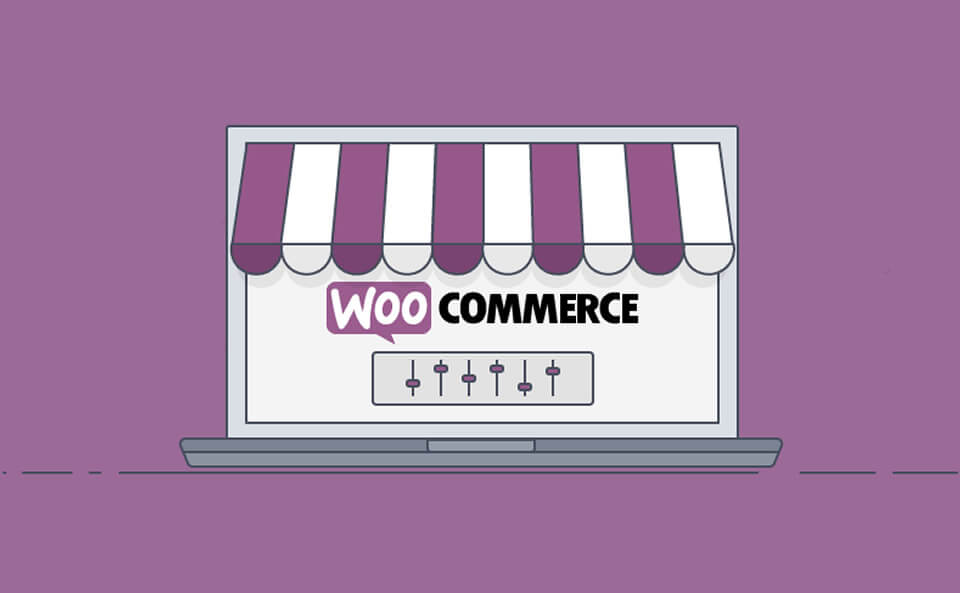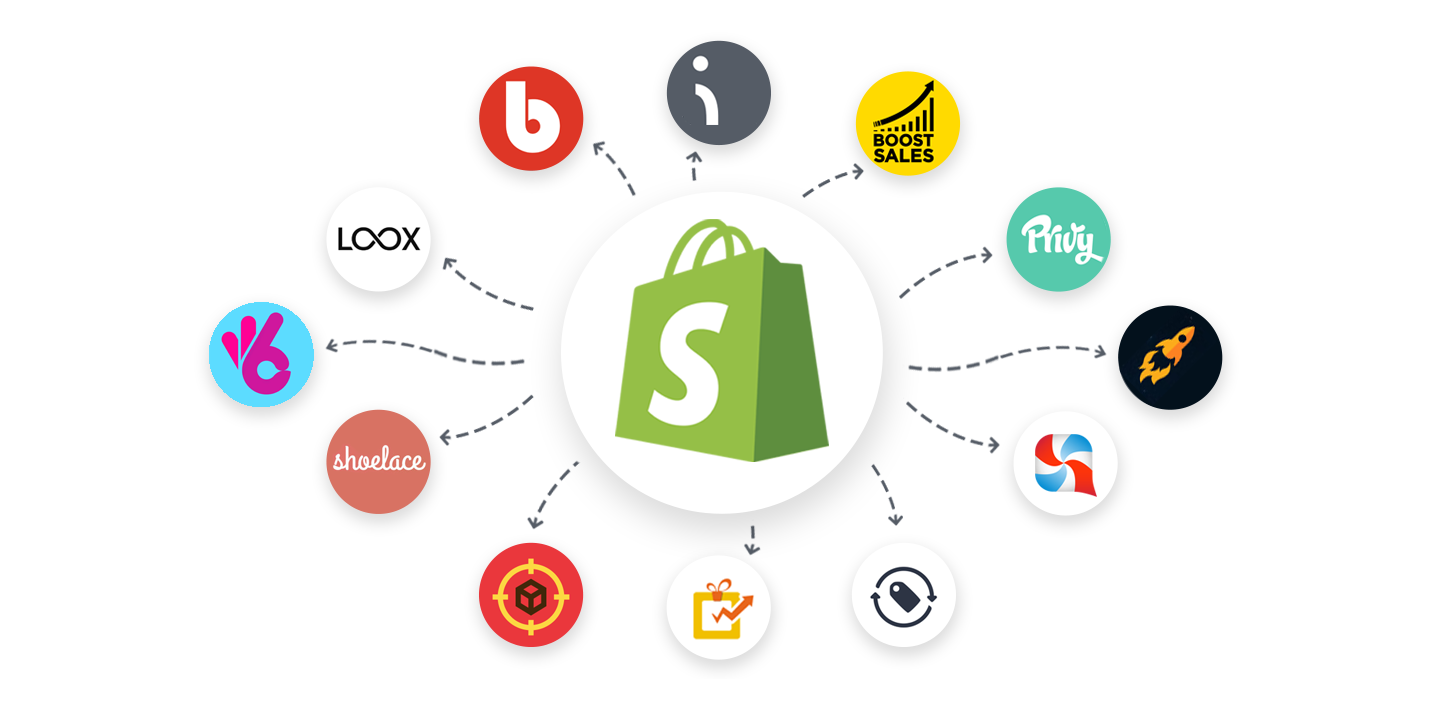- SEOProfiler Review: Is this the Right SEO Tool for Your Business? - May 29, 2020
- Long Tail Pro Review: Is It The Best Keyword Research Tool? - May 29, 2020
- Our Sendlane Review: Why I Strongly Recommend It - May 29, 2020
Last Updated on September 5, 2022 by
In this guide, we’re going to provide you with an in-depth comparison of Shopify vs WooCommerce about all of the most important factors and elements that you need to consider when selecting which eCommerce platform will provide you with the functionality and capabilities that you need to grow your business.
Several studies point to verifiable evidence which shows that consumers of all ages are beginning to choose online shopping as their primary method for buying new items and submitting purchases on things that they want or need.
With the advent of the internet, many people are taking advantage of how easy it is to promote brands, products, and other lifestyle add-ons in today’s climate without the need for a huge initial budget or connections to industry marketing experts.
That means that thanks to the online marketplace, anyone interested in opening up a business to sell either products or services can now do so with very little restrictions and a very little barrier to entry.
The short answer is that Shopify IS the market leader, with 2000+ integrations and a one of a kind third party APP MARKETPLACE. Upsells, downsells, crossells, emails, triggers, reviews....theres an app for that with Shopify!
The world of online shopping or owning a business online where customers can purchase products or services is known as e-commerce.
While the idea of e-commerce is relatively new, examples like Amazon’s prime membership option show the potential impact that the internet has on the way that we shop for the essential and non-essential items that we need in our everyday life. As stated before, the biggest draw to eCommerce platforms, in general, is the fact that you can literally start a very profitable and sustainable business from the comfort of your own home.

Before you can begin selling products or services online, you must first open your online store and to do so, you must choose which eCommerce platform will provide you with the capabilities and functionality that you need most in order to maximize the potential results that you see from your online store.
There are a lot of different eCommerce websites and platforms available out there all of which vary in terms of the capabilities and functionalities that they offer to you as the owner and operator.
Thing such as plan options, pricing, design capabilities, layout customization, and more all play a very important role in helping you decide which eCommerce platform will provide you with the best starting point to grow your business to the level that you desire.
Two of the main eCommerce platforms available are Shopify and WooCommerce, both of these platforms offer a wide range of very beneficial options for those interested in starting an online business in virtually any type of industry that you can imagine.
While both Shopify and WooCommerce provide many of the same benefits, they do vary in some key areas which is something that you’ll want to keep in mind before making the final decision about which one you should sign-up for to launch your store.
If you’ve been trying to make a choice between which eCommerce platform is right for you when comparing Shopify and WooCommerce, you’ve come to the right place.
To begin, we’re going to take a look at exactly who both Shopify and WooCommerce were designed for so that you can have a better understanding as to how you can utilize them to improve your overall online sales and engagement long-term.

Who are Shopify and WooCommerce for?
Both Shopify and WooCommerce are eCommerce platforms that were created with the everyday business owner in mind. These two online commerce solutions are driven towards giving everyone an even playing field in terms of their ability to successfully market and promote the various products that they offer.
Let’s say for example you make custom clothes inside of your home, you can use a platform like Shopify or WooCommerce to begin selling those items without the need for a large budget in order to open a physical storefront.
These two platforms can also be used by individuals who already have an established brand or business and simply want to build on their existing sales or engagement.
There really is no core target audience or one specific base of users that will benefit more than others by using either of these platforms, it all depends on the amount of time and effort you put into promoting your brand and how well potential customers react that will determine whether or not you are a successful online business owner.
Now that we’ve gone over exactly who Shopify and WooCommerce are for, it’s time to take a look at what some of the main differences are between these two eCommerce platforms so that you will be able to make the best decision about which one will provide you with the most benefits and advantages in terms of product promotion and an all-around increase in the amount of sales that you see on a regular basis.
The Main Differences Between Shopify vs WooCommerce
When it comes to choosing between Shopify or WooCommerce, there are a few key elements that will go into you making your final decision about which one of these platforms has the capabilities and features you need most.
While both of these platforms do offer many of the same service options, features, and capabilities, they do vary quite substantially when it comes to what is required for you to get started using either one of them for your online business needs.
To make the best decision, you need to become educated about all of the various differences between both of these platforms so that you will be able to see which one has the specific features and capabilities that you’re looking for. In the following section, we’re going to provide you with a detailed comparison of both platforms so that you will be able to get a realized view into what you should expect when choosing either one for your eCommerce needs.
Main Differences Between Shopify vs WooCommerce
The Main Differences Between Shopify vs WooCommerce are:
- Shopify is more of an intuitive platform that makes it easy for you to set-up and begins making sales with your online store in no time whereas, WooCommerce requires a little more technical knowledge and ability to get started with the platform
- Shopify does not require you to have a WordPress account in order to be able to use the platform, whereas WooCommerce does.
- Shopify is an all-in-one eCommerce solution whereas, WooCommerce is touted as a self-hosted eCommerce platform
- Shopify costs less to begin operating your store whereas, WooCommerce is more expensive
As you can see, these are some of the main differences that you can expect to encounter when deciding on which one of these eCommerce platforms is right for you. Depending on your preferred method of approach in terms of product marketing, sales handling, customer support, and other variables important to the overall process of running a successful eCommerce business.
You should always consider your personal needs and goals as it pertains to what features you deem most important to the overall success of your online business before signing up for any online eCommerce platform.
This will enable you to make an educated decision about the platform that will be optimal for your specific interests so that you can maximize the amount of potential interactions and sales that you get from your venture.
Now that we’ve gone over some of the core differences between both of these platforms, it’s time to take a look at all of the different plans and pricing options that you’ll be able to choose from when selecting between these two online sales platforms.

Plans & Pricing Options: Shopify vs WooCommerce
One of the most important things to consider when choosing the right eCommerce platform aside from its functionality and capabilities is the amount that it costs to operate your business from month to month. Both of these online sales solutions offer different pricing options and plans you can choose from in order to gain access to new features and plugins which can help you improve the overall quality of your store and ability to make real conversions that turn into repeat sales.
Both pricing structures for each of these businesses vary significantly which is why you’ll want to take the proper amount of time to research everything you need to know about which plan is optimal for your desired needs.
Take a look below to see all of the various pricing options and plans that you can choose from when it comes to deciding which platform is right for when it comes to deciding which platform is right for your intended use on Shopify and WooCommerce.
Shopify Pricing Options
Shopify offers 3 different plan and pricing options for you to choose from, depending on what you core interests and desired are in terms of promoting your products and running your online store in general, each of them offers distinct benefits as it relates to the features and capabilities that you’ll gain access to which can be used to further the overall progress and profits of your business long-term.
Below, we’re going to give you an in-depth look at all of the various plans and pricing options you can choose from when selecting when using this eCommerce solution as your chosen platform.
Basic Shopify- $29/mo.
- Unlimited products
- 2 staff accounts
- 24/7 Customer support
- Sales channel capabilities
- Discount codes
- SSL Certificate
- Abandoned car recovery
Regular Shopify- $79/mo.
- Unlimited products
- 5 staff accounts
- 24.7 Customer support
- Sales channel functionality
- Manual order creation
- Discount codes
- SSL Certificate
- Professional reports
- Gift cards
Advanced Shopify- $299/mo.
- Unlimited products
- 15 staff accounts
- 24/7 Customer support
- Sales channel functionality
- Manual order creation
- Discount codes
- SSL Certificate
- Abandoned cart recovery
- Professional reports
- Gift cards
- Advanced reporting tools
- Auto-calculated shipping rates
WooCommerce Pricing Options

WooCommerce is a self-hosted eCommerce solution which essentially means that you are responsible for providing the platform off of which your entire store will run.
Due to this very reason, WooCommerce itself is free however there are several different pieces of infrastructure that you must set-up before being able to use the solution for your desired eCommerce needs. The basic set-up for WooCommerce is as follows:
- Domain Name- $12/yr.
- Dedicated Hosting Service- $5-$25/mo.
- WooCommerce Theme $59 (one-time-fee)
- Extensions & Site Plugins- $25/each
- Developer Fees- $20-$150/hr.
All of these different elements will be required in order to start a functioning site using WooCommerce as your selected sales management base.
While this can be a good thing because you are not locked into using any software made by one company or developer, it can also raise the overall operating cost of your online store due to the fact that you have to pay for all of these different elements separately.
This also gives you more control over the entire setup and daily operation of your online store so that you can fully customize and personalize your business according to whatever design standards and ideas that you may have.
Before making your final decision about which one of these eCommerce platforms is right for you based upon their price and plan options, you need to consider your individual needs as it relates to what features and capabilities you’ll need most in order to maximize the profit potential of your online store.
Now that we’ve gone over the main pricing options and plans that you’ll be able to choose from when using either of these eCommerce platforms, it’s time to take an in-depth look at all of the core features and capabilities that you can expect from each of these online store management solutions.
The short answer is that Shopify IS the market leader, with 2000+ integrations and a one of a kind third party APP MARKETPLACE. Upsells, downsells, crossells, emails, triggers, reviews....theres an app for that with Shopify!
Core Features & Capabilities: Shopify vs WooCommerce
When it comes to owning an online business, one of the most important factors that will determine the level of success that you reach is the background system that you use to manage and control all of the necessary infrastructures that goes into your business.
Both of these eCommerce solutions offer you the ability to take full control of how your online business is run by giving you access to a wide range of different premium tools which you can utilize to propel your business forward.
Since both platforms offer different levels of features and capabilities, you’ll want to become educated about all of the options available to you so that you can make the right decision about which eCommerce solution is the exact one that you need to gain the results you deserve.
Take a look below to see in-depth analysis and review of all the core features that you can expect to access when signing up for either of these platforms.

Core Features: Shopify
Shopify offers a lot of very useful and powerful tools that you can use to take your online store to the next level. These features range from things like the ability to create custom coupon codes for your customers in addition to detailed sales insights that help you stay on top of how your store is performing in general. Continue reading to learn more about the core features and capabilities offered to you by this platform.
Payment Gateway Versatility
One of the most important parts of running an online business is being able to accept a wide range of different payment methods and options.
This eCommerce solution makes it easy for you to get paid by offering a huge variety of different payment gateway integrations and options that you can select from to offer your customers at checkout. Some of the most popular payment gateways are PayPal, Zelle, and Skrill, however, the platform gives you the ability to choose from many other options so that your customers have the ability to shop the way they want when they want.
Unlimited Products
These eCommerce platforms allow you to list an unlimited number of products and items on your online store so that you can fully maximize your potential profits.
With other online store management solutions, the number of products that you can list at any given time may vary depending on the plan option that you’re signed up for.
This is why this platform is one of the best in existence because it allows you to take full control over how your store is represented and what type of sales figures you bring in based on the product selection that you offer.
Blog & Website Options
Customer interaction and engagement in general is also another very important part of any successful online business. This eCommerce solution allows you to create stunning content and blog posts that relate to the specific product niche or industry that you’re in.
This will allow you to create an environment of loyalty and customer interest as you can offer specialized content designed to bring your core audience-specific benefits in their daily lives. You can also use your content and website section as a way to inform your customers about upcoming events or promotions as they relate to your online store or line of products.
Custom Discount Codes
One of the most effective ways of gaining a consistent amount of sales and customer interaction is by offering special coupon codes to your audience.
This eCommerce platform allows you the ability to create custom coupon codes which can be used to give your customers unique discounts and special promotions on the items in your store. You have the full capability to create customized coupon codes that can range in discount percentages of all types, this is a great way to drive natural traffic and visitors to your website without paying for promotion.
Abandoned Cart Recovery
One common problem that a lot of eCommerce store owners have to deal with is that of users abandoning their carts after they’ve already added items or products to it.
This phenomenon is known as an abandoned cart which basically means that someone came to your website, added a product to their cart, and exited the page without ever checking out or paying for the item. While you may be disappointed that you didn’t make a sale, there is a lot that you can learn from customer abandoning their carts and this knowledge can be implemented into other areas of your business in order to increase its overall value and profitability.
Things like the amount of time that a customer’s spends on other pages on your website, the website elements that they interact with, and more can tell you a lot about how you can further optimize your online store to start seeing real results in terms of profit potential and overall engagement.
This feature also allows customers to recover all of the items in their abandoned cart by simply returning to the website so that they can pick up where they left off without having to sign-up for an actual account.
Core Features: WooCommerce

WooCommerce offers a lot of intuitive capabilities and features that online store owners can use to completely personalize your store and how customers interact with your brand.
Due to the fact that this platform has more of a focus geared towards the technological side of store creation and management, there are a lot more robust capabilities that you can access when using it for all of your eCommerce needs.
One-Click Refund
Dealing with refunds is one of the most painstaking factors that online business owners have to deal with. Depending on the payment processor used and how your eCommerce platform is set up, the refund process can involve many different steps and take an immense amount of time which is why it’s always good to have access to a reliable and convenient way to process refunds.
With this eCommerce platform, you will be able to process refunds with an easy one-click function that streamlines the entire process leading to happier customers and fewer disputes for your business.
Blogging Capabilities
Another really cool feature of this online sales platform is that it allows you to create original and stunning content by way of blogging.
The integrated blog feature is something that online store owners can use to help organically promote their products or services without having to spend tons of money on an expensive advertising campaign or budget.
By creating relevant content that coincides with the overall theme of your store and industry, you will be able to increase the ranking of your store within natural search engines by Google which is very important for bringing in long-term sales on a consistent basis.
Unlimited Customization Options
One of the main reasons why people choose this eCommerce platforms over others is due to the fact that it allows you to customize virtually every aspect of your online web store with no limitations or restrictions on your capabilities.
While other platforms put very limiting restrictions on exactly what changes and edit you can make to your online store, this eCommerce solution was designed with full customization in mind. There are literally no limits to what you can achieve when using this platform for your online store management needs. E
verything from the overall design, it’s a layout, product pages, and more can be fully customized according to whatever design ideas or mockups that you may have in mind. This makes it really easy for you to infuse your online store with your own sense of personal style and flair so that your products are set apart from all of the other options readily available on the market.
Embedded Product Options
A great way to increase the number of organic sales and interactions that your online store gets is by embedding products onto different store pages and experimenting with your site’s layout in general.
There are a lot of subtle triggers and indicators which affect the way that a buyer thinks about purchasing your item before actually doing so.
It can take some time trying to figure out exactly what makes your customers in particular click or become excited to purchase a product which is why embedding your product on several different pages and gauging the response for each is the best method for finding the optimal website layout for your visitors.
This solution lets you do just that with the ability to embed specific products and checkout buttons onto different pages so that you can not only gain insight into what makes your customers most excited to purchase, but also make their entire experience on your website more hassle-free and less complicated.
These are just some of the core features and capabilities that you can expect to gain access to when using either of these platforms for your online store management needs. Another really important variable to consider when choosing the right online sales solution for your specific needs is the number and type of integrations that are compatible with each option.
Integrations are considered as one of the costs of doing business in the online sales industry and as an online store owner, you will have no choice but to use them if you plan on maximizing your overall profits and interaction. Both of these platforms give you the ability to use a wide range of different integrations that will help you fine-tune the way that customers interact with your store and how you interact with your customers.
Now that we’ve taken a look at some of the core features you can expect from both of these online sales solutions, it’s time to look at all of the various pros and cons that each platform has.

Pros & Cons: Shopify vs WooCommerce
Before deciding on which one of these platforms you think will bring the most benefit to your online store, it’s important for you to factor in all of the various pros and cons that each one of them have.
In the following section, we’re going to provide you with an in-depth breakdown of all the various pros and cons that each platform has so you can make an educated decision about which one is right for you.
Shopify Pros
- All-in-one platform that provides all of the tools you need to run a successful eCommerce business in one easy to use the package
- Lots of premade templates that make it easy for you to begin operating your online store without the need for hiring developers or coders
- Various plans and pricing options for you to choose from so that online business owners of all kinds can get a personalized eCommerce solution that addresses their direct needs
- Gives your website an added layer of credibility by providing you with a free SSL certificate with all of their various plan options
- 24/7 customers support access which helps you get the right assistance that you need in any situation
Shopify Cons
- Limited control over logistics such as payments and dispute handling is limited
- Can run into scaling issues for larger businesses
WooCommerce Pros
- Robust customization and personalization capabilities which makes it easy for you to make your website truly reflective of your personality
- Various integration options are available so you can fully optimize the checkout process for customers and their overall experience on your website
- Unlimited product listings which allow you to sale what you want when you want without any serious limitations
- Multiple premia and free theme options for your website so you can get the right look regardless of what industry you may be in
- Google Analytics can be integrated into this eCommerce solution
- Flexible payment options and capabilities which allows you to have more control over your business in terms of how the backend is handled on a daily basis
WooCommerce Cons
- You have to buy your own domain name in order to activate the platform
- Does not come with an SSL certificate by default
As you can see, all of these various pros and cons will be critical in helping you decide on which of these eCommerce solutions will be the best for your intended needs.
Before making a final decision about which one of these online management solutions you should use for your online store, you should take into consideration all of these different pros and cons so you can make an educated decision about which one will provide you with the most beneficial features and capabilities.
Now that we’ve gone over all of the main pros and cons that you can expect to encounter when using either of these platforms, it’s time to take a look at what our decision is in regards to which one of these eCommerce solutions is best.
Shopify vs WooCommerce: Our Decision
When it comes to making a decision about which one of these eCommerce solutions is best, there are a lot of different variables a factor that you need to consider.
While it’s nearly impossible for us to make a definitive decision about which one of these online sales management solutions is the “best” one, there are some core factors and principles that we can use to formulate an educated decision about which one we feel is more well-rounded and fully-capable.
After thinking long and hard about both of these platforms, we’ve come to the conclusion that Shopify is the clear winner. The platform wins the comparison for a variety of different reasons one of the main ones being it’s the intuitive user interface. The platform makes it easy for you to navigate all of the menus, buttons, and options that you’ll need in order to properly customize the user experience for your customers.
The short answer is that Shopify IS the market leader, with 2000+ integrations and a one of a kind third party APP MARKETPLACE. Upsells, downsells, crossells, emails, triggers, reviews....theres an app for that with Shopify!
You also get access to many integrated features such as a positive SSL certificate and abandoned cart tracking as standard features which it’s competitor does not offer. It’s also a much more comprehensive platform than other solutions currently on the market so you can handle all of your core tasks in one place without having to use a ton of third-party integrations or software solutions.
If you own an online business or are interested in starting one, Shopify is the perfect platform for you to learn the ropes and pick up some valuable knowledge that you can carry with you throughout the rest of your career. The variety of different plan options is also what makes it such an attractive platform when compared to other options currently available.
Now that we’ve given you our opinion about which platform we think is best, let’s look at some of the most frequently asked questions that people have about both of them.

FAQs
Both platforms offers responsive email and chat customer support options for their members
It all depends on the type of store you run and what your budget is
Each platform has its own refund policy which you should check before signing up
Shopify vs WooCommerce: Conclusion
We’ve gone over all of the most important information and facts that you need to know about both Shopify and WooCommerce in order to help you make an educated decision about which one is right for you.
Take the time to look over all of the information we’ve provided you with in this guide so you can compare it to your personal needs as they relate to what features and capabilities you need access to the most in order to reach maximum success with your online store.
Here are other related articles you may be interested in:




